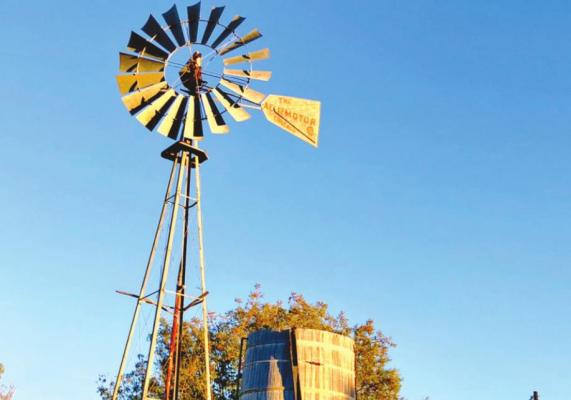Groundwater District presents research opportunities
Brewster County Groundwater Conservation District is hoping water well operators, residential or otherwise, will get involved with the organization’s groundwater research efforts.
The district is tasked to manage, protect, and conserve groundwater resources, while protecting property rights and promoting constructive and sustainable development across the county.
It’s governed by a seven-member board appointed by Brewster County Commissioners Court. This board manages the county’s well registry, and approves drilling permits and other water use requests.
Texas Administrative Code Chapter 36 defines statewide water code, including permit requirements. Any well providing water beyond domestic use requires an operating permit. This includes wells for RV parks, restaurants, hotels, and even municipal water supplies. The permit includes installation of a water meter to track how much water is coming out of the ground.
There’s been reluctance by some to get on board, with no such entities in compliance in all of south Brewster County.
At a recent commissioners court meeting, Conservation District General Manager Summer Webb stressed the value of obtaining a wider network of well data.
Said Webb, “With metering, we can see what’s taken out of the ground. Are we holding at the same level every year? What kind of growth can we sustain?”
She emphasized that the district wasn’t there to be “over regulatory.” Rather, they seek to learn about one of the state’s most mysterious aquifer systems, its limits and capabilities, and to make informed management decisions going forward.
Webb said being in compliance would also help with eligibility for water-related infrastructure grants.
Webb wants to form good relationships with residents, and hopes the voluntary opportunities to get involved will inspire a curiosity about what’s below ground that would transcend any reservation to be metered.
Anyone with a well, whether the well is in use or not, can inquire about having a research data meter installed. These meters provide data about the underground ebbs and flows of the groundwater supply, and can do so remotely, so the process is as unobtrusive as possible.
With enough data, regional aquifers can be mapped and better understood, revealing long-term predictability of water supply.
Besides collecting well data, the district is co-hosting a water quality testing event with Texas A&M AgriLife Extension Service May 4-5.
Well water samples will be screened for common contaminants including fecal coliform, bacteria, nitrates, and high salinity, followed by an explanation of the results.
The first 100 water kits will be free, with each additional kit costing $10. Testing containers and instructions can be picked up prior to May 4 at the AgriLife Extension office located at 2101 FM 1703, or at the Conservation District office located at 203 North Seventh Street, both in Alpine. Participants will turn water samples in May 4 at either office between 8:30-10 a.m. Results and interpretation will take place May 5 at 10 a.m. at Alpine Civic Center.
To inquire about research opportunities, or to register for the water quality testing event, email Webb at bcgwcd@gmail.com.



